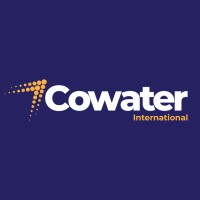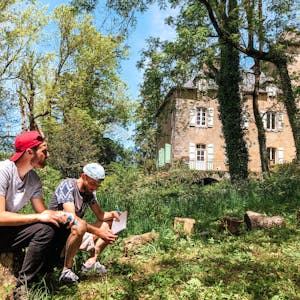SUMMARY OF THE POSITION
Reporting to the Team Leader, the MEL and Capacity Building Specialist will be primarily responsible for (a) building the capacity of partners and target agencies to ensure quality delivery of clinical, management, and community training programs for health service providers and kaders and (b) leading and implementing the project MEL activities.
This will involve liaising with the Ministry of Health and coordinating the planning and facilitation of all capacity building components of the Outcomes focused on clinical and management training for health service providers. This will also include adapting training plans and modules for the training of kaders in the communities and play a key role in the overall quality assurance of project capacity building activities. Additionally, the Specialist would be responsible for implementing the Monitoring, Evaluation and Learning (MEL) plan and activities of the project to ensure accountability, monitor progress of activities, gather data to report on PMF indicators; support in meeting reporting requirements with reliable and efficiently obtained data in coordination with relevant partners.
KEY RESPONSIBILITIES
1. Capacity Building and Quality Assurance (45%)
Training Needs Assessment & Planning
- Lead joint training needs assessments (TNAs) for health providers, managers, and cadres at Puskesmas, Pustu, and community level.
- Identify and review existing national training modules (SRHR, EmONC, FP, GBV, maternal nutrition) and management of Puskesmas and Pustu and identify content or delivery gaps.
- Coordinate with MoH, PHO, and DHO to align SEHAT training priorities with PHC reform and government systems.
Training Design & Delivery
- Adapt national modules to local contexts, incorporating gender, inclusion, and emergency readiness.
- Develop job aids, supervision tools, and mentorship guides tailored for Puskesmas and Pustu staff.
- Facilitate and co-deliver structured SRHR trainings and management training to at l providers (midwives, nurses, doctors) in CS and Papua.
- Organize Training of Trainers (ToT) for PHO/DHO staff to ensure sustainability.
Mentorship & Supportive Supervision
- Establish structured on-the-job training (OJT), peer learning, and performance evaluation systems with MoH
- Provide TA to PHO/DHO in operationalizing supportive supervision and clinical mentorship frameworks.
- Develop schedules, checklists, and coaching protocols to embed supervision in daily practice.
Strengthening Health Management & Leadership
- Support DHO, Puskesmas, and Pustu managers to apply gender-responsive planning, resource allocation, and governance.
- Facilitate training and coaching on strategic planning, team supervision, data use, and BLUD financial management.
- Help managers institutionalize performance-based service delivery systems that integrate patient feedback.
Community Health Worker (Kader) Capacity Building
- Design and implement structured training for Kaders on SRHR, GBV response, youth SRH, and community-based PHC coordination.
- Promote peer learning formats, reflection sessions, and exchanges among Kaders.
- Support PHC managers to integrate Kader contributions into facility planning and outreach.
Integration with Systems & Sustainability
- Align training, supervision, and management interventions with MoH’s learning program and PHC transformation reforms.
- Document lessons and best practices to feed into national guidelines and district health plans.
- Track training participation, competency gains, and mentorship outcomes against PMF indicators (e.g., % providers demonstrating skills, # managers applying gender-responsive budgeting).
- Maintain training records, supervise evaluation processes, and support MEL team in reporting to GAC.
2. Monitoring, Evaluation and Learning (45%)
- Lead the implementation of SEHAT’s MEL Plan in compliance with GAC’s Results Based Measurement (RBM) approach and measuring progress against the indicators outlined in the Performance Measurement Framework (PMF).
- Oversee baseline, midline and endline surveys as agreed.
- Lead development of data collection tools (quantitative and qualitative) and ensure standardization across provinces/districts.
- Coordinate with MoH to strengthen interoperability between program databases and national Health Management Information Systems (HMIS).
- Coordinate with partners’ MEL staff to ensure consistency, data quality, and alignment with SEHAT’s MEL requirements.
- Supervise data entry, cleaning, quality checks, and validation at central and field levels.
- Establish and maintain a secure system for data management - a database/dashboard for collecting, aggregating, storing and visualizing real-time program performance data.
- Prepare quarterly and annual MEL reports (including data collection and analysis) for internal and donor use. This includes contributing to the Six-monthly and Annual Results Reports of GAC.
- Provide technical assistance and on-the-job mentoring to provincial and district M&E officers.
- Produce communication product, and success stories to demonstrate results.
- Ensure MEL activities comply with Global Affairs Canada RBM requirements and contribute to continuous learning and program adaptation.
- Lead internal six-monthly Pause and Reflect sessions to discuss progress and learnings, in coordination with Cowater HQ Impact and Learning Director.
- Provide timely evidence and analysis to inform project leadership and partners’ decision-making.
- Engage with the Cowater Impact and Learning Team to contribute to learning outcomes.
- Under the leadership of the Team Leader, the Specialist will be expected to collaborate closely with the Cowater HQ Director for Impact and Learning in carrying out the activities outlined above.
3. Networking and Stakeholder Engagement (10%)
- Maintain strong relationships with MoH, BKKBN, and other relevant national institutions.
- Support alignment of SEHAT interventions with national policies, guidelines, and reporting frameworks.
- Represent the program in national monitoring and evaluation working groups, technical committees, and sectoral coordination meetings.







